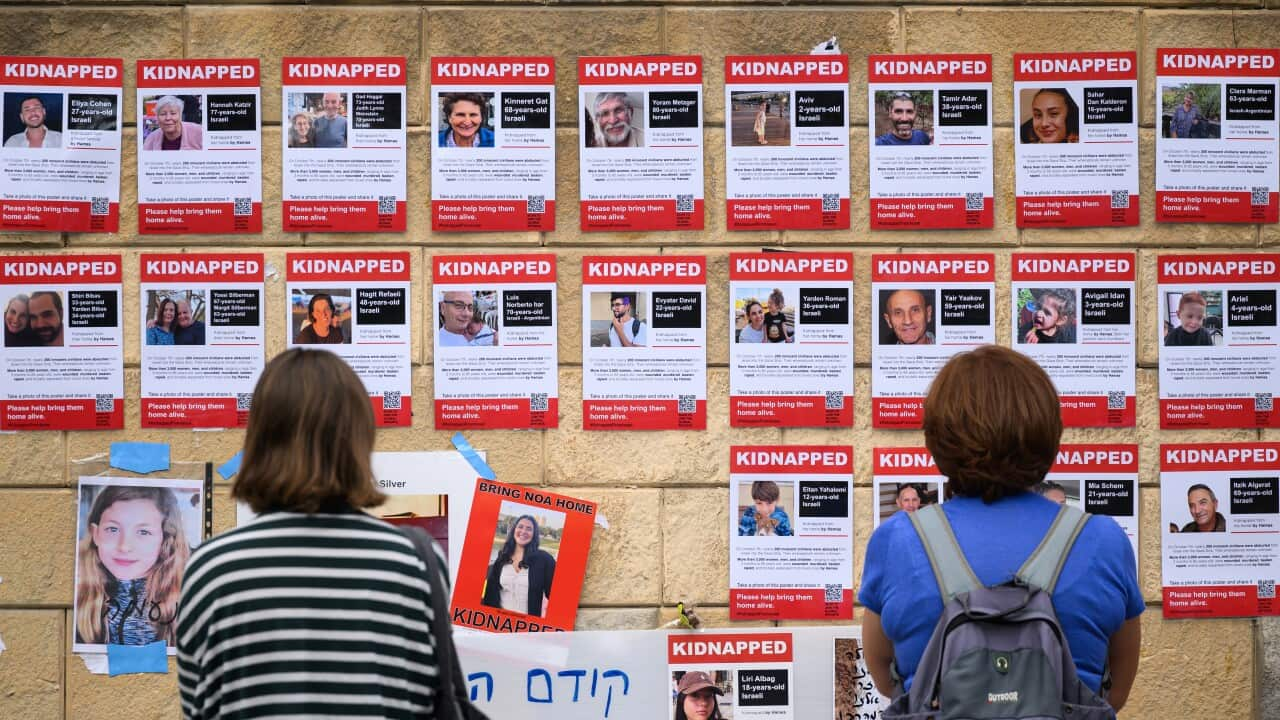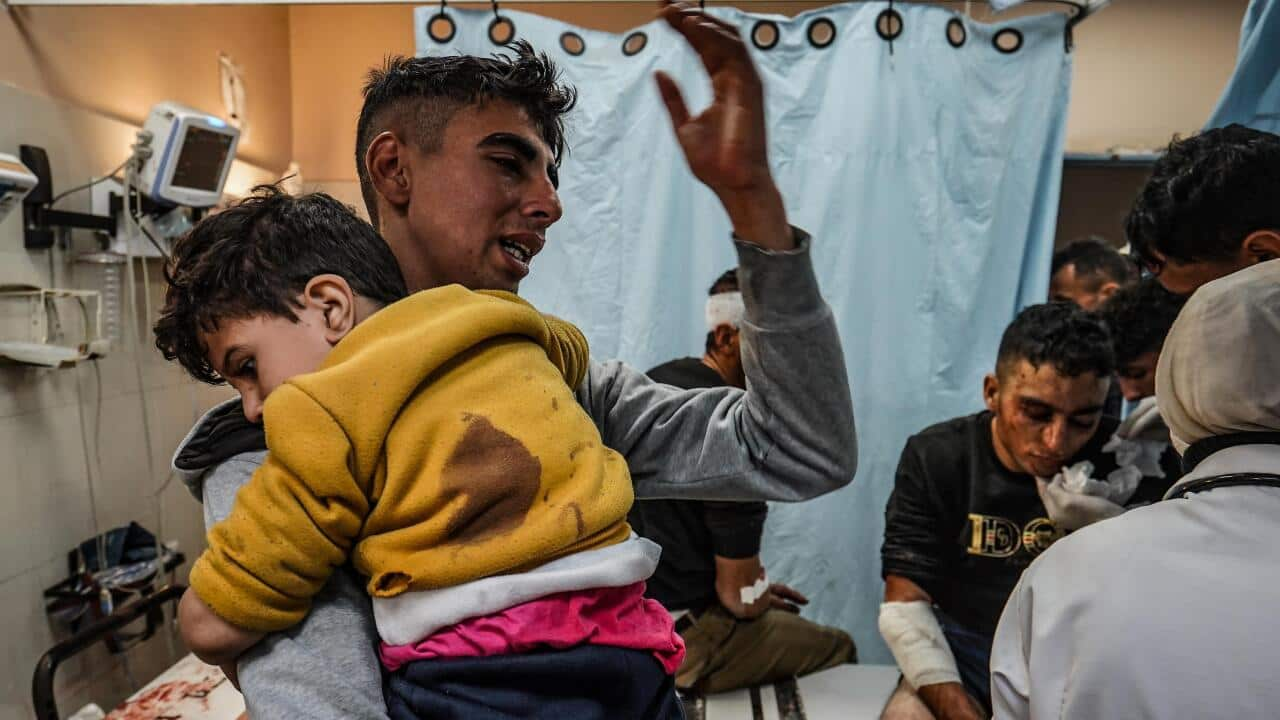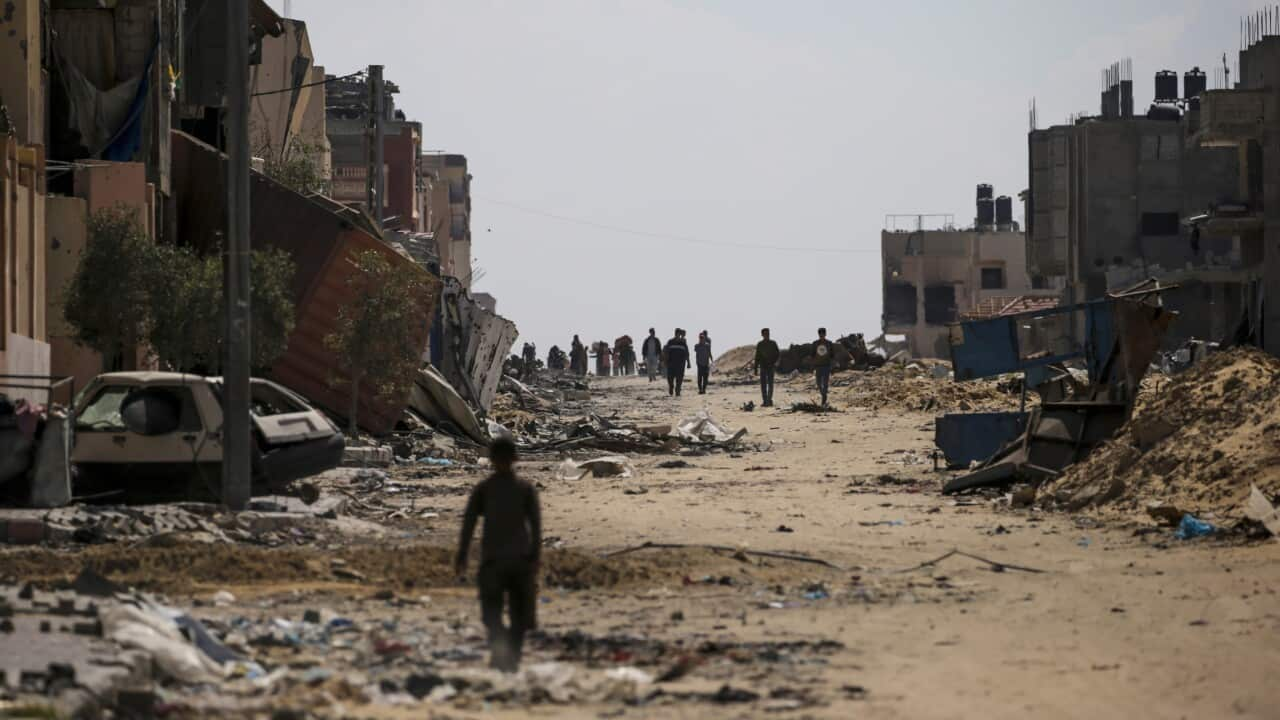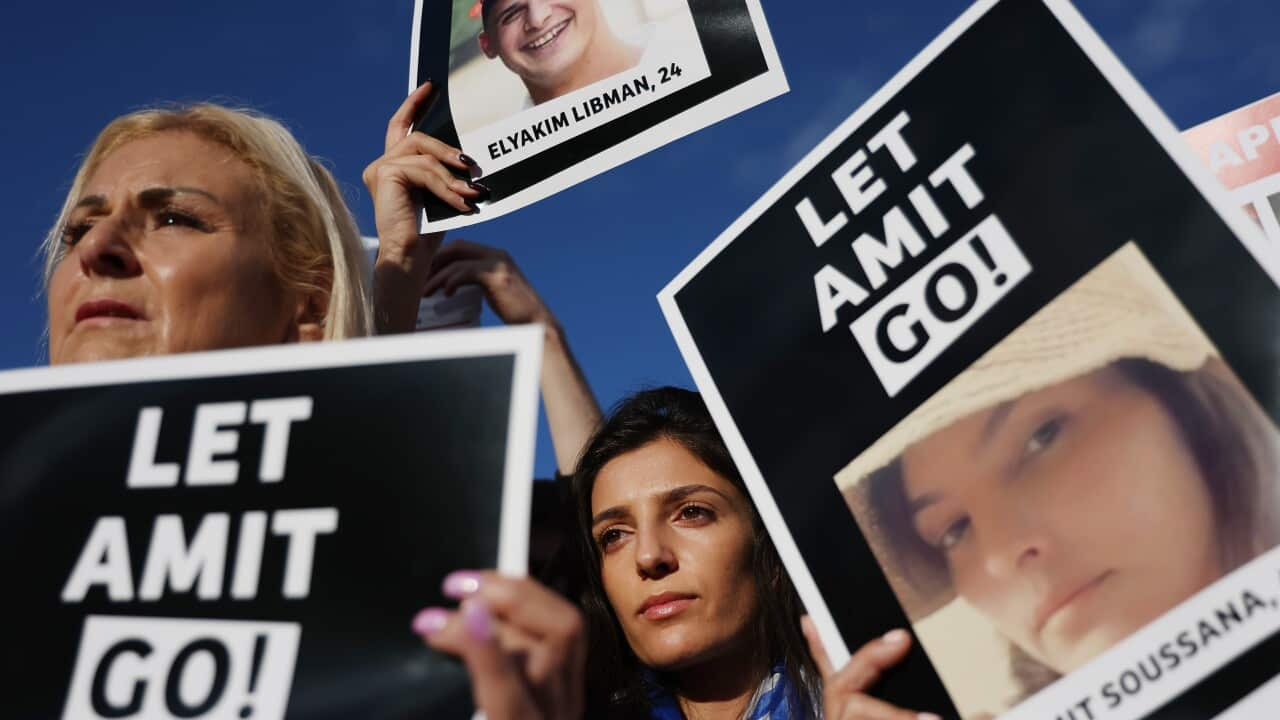Key Points
- The latest Israel - Hamas deal to release the remaining hostages in Gaza has fallen through.
- Around 130 remain in Hamas captivity after others were brought home in November 2023.
- There's growing domestic pressure on Netanyahu as relatives of hostages stormed Israeli parliament on 22 January.
A veteran hostage negotiator who helped broker the most famous prisoner swap deal in Israel's history has called on the international community to act to stop the war in Gaza, saying "we can't wait for the Israelis and Palestinians to come to their senses and make a deal".
Gershon Baskin is an Israeli with a 17-year history of talking to Hamas leaders. When asked by SBS News if a fair could occur he disagreed.
"Hamas has a stronger hand than Israel does" because military power, such as that Israel has, only works when you have an enemy that "fears death," he said.
"If you have a religious undertaking, a commandment, a belief that your path to the gates of paradise is through being a martyr, then the military might actually (have) very little influence on their ability to persuade them into a deal.
"The international community has to take action in order to force a deal."
Some 130 Israeli hostages remain in captivity after others were brought home in a November truce.
'They're both committed to killing each other'
Baskin is the Middle East director at the advocacy group International Communities.
He has spent almost two decades negotiating with Hamas and, in 2011, successfully secured the release of Gilad Shalit, an Israeli soldier who had been held captive for over five years.
That deal involved the release of more than 1,000 Palestinian prisoners held in Israeli jails - including the current Hamas leader in Gaza, Yahya Sinwar.
Baskin, who has a doctorate in international affairs, is accepted as a mediator by both Hamas and the Israeli government, even though, he said, he is not acting in any official capacity and no-one has asked or empowered him to negotiate.
Baskin said these negotiations are "very difficult".
"At the official level, Israel and Hamas don't talk to each other. Not only don't they talk to each other, but they're also both committed to killing each other, which makes it very difficult."
He said that because of his 17-year history of talking with Hamas leaders, they respond to him.
"If I send messages either directly to them or through a person who's connected to them, who's not necessarily a Hamas member, they respond. So I can have direct communication with Hamas and I can respond directly to the Israeli officials as well," Baskin added.
He said the most important thing right now is to bring the hostages home.
"What I've said to Israelis is that the most important thing is to get the hostages home.
"Hamas will give enough excuses to renew the war afterwards, you can finish the war at a later time. The first thing that must be done is to get the hostages home. They are dying every day in Gaza."
'No deal was yet in place'
Concentrated efforts led by official mediators Qatar, the US and Egypt have taken place in recent weeks.
The focus now is reportedly on a phased approach towards releasing Israeli hostages, starting with civilians and ending with soldiers.
This release is contingent on an ending of hostilities, freeing of Palestinian prisoners, and increased aid to Gaza, it is reported.
As reported by Reuters citing a Palestinian official close to the mediation effort, while Israel has sought to negotiate one stage at a time, Hamas is seeking "a package deal" that agrees on a permanent ceasefire before hostages are released during the initial phase.
On 22 January, there were reports the Israeli government had offered a two-month ceasefire to Hamas in exchange for the release of the remaining hostages.
Asked about the negotiations, senior Hamas official Sami Abu Zuhri told Reuters the organisation was open to discussing ideas but that no deal was yet in place.
One offer by Israel is to end the war if Hamas removes six senior leaders from Gaza, said an unnamed Reuters source. However, Hamas "absolutely" rejected the proposal, he said.
Israeli government spokesperson Eylon Levy said at a press conference on Tuesday efforts were ongoing to secure the hostages' release.
He said Israel would not agree to a ceasefire deal that leaves Hamas in power in the enclave.
Israel has bombarded Gaza since Hamas' 7 October attack in which more than 1,200 people, including an estimated 30 children, were killed and over 200 were taken hostage, according to the Israeli government.
More than 25,490 people have been killed in Gaza since 7 October, the majority of them women and children, and more than 63,350 wounded, according to the health ministry in Hamas-controlled Gaza.
It does not differentiate between civilian and militant deaths but says most of those killed have been civilians.
The 7 October attack was a significant escalation in the long-standing conflict between Israel and Hamas.
, which has governed the Gaza Strip since the most recent elections in 2006.
Its stated aim is to establish a Palestinian state and stop the Israeli occupation of Gaza and the West Bank, illegal under international law.
Hamas in its entirety is listed as a terrorist organisation by the European Union and seven other countries, including Australia.
In 2021, the International Criminal Court opened an investigation into alleged Israeli war crimes in the Palestinian territories dating back to 2014, including the recent attacks of both Israel and Hamas.













